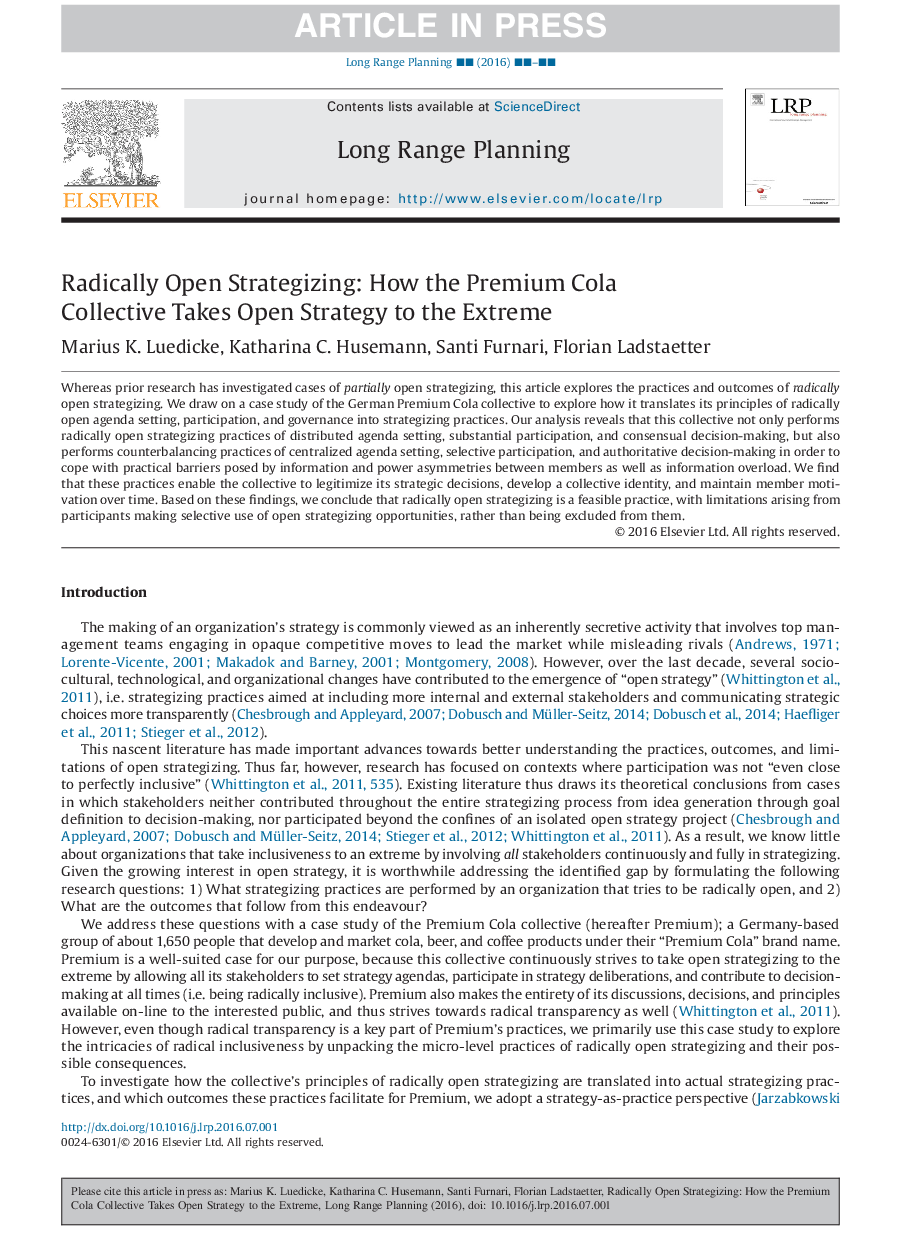| Article ID | Journal | Published Year | Pages | File Type |
|---|---|---|---|---|
| 5110247 | Long Range Planning | 2017 | 14 Pages |
Abstract
Whereas prior research has investigated cases of partially open strategizing, this article explores the practices and outcomes of radically open strategizing. We draw on a case study of the German Premium Cola collective to explore how it translates its principles of radically open agenda setting, participation, and governance into strategizing practices. Our analysis reveals that this collective not only performs radically open strategizing practices of distributed agenda setting, substantial participation, and consensual decision-making, but also performs counterbalancing practices of centralized agenda setting, selective participation, and authoritative decision-making in order to cope with practical barriers posed by information and power asymmetries between members as well as information overload. We find that these practices enable the collective to legitimize its strategic decisions, develop a collective identity, and maintain member motivation over time. Based on these findings, we conclude that radically open strategizing is a feasible practice, with limitations arising from participants making selective use of open strategizing opportunities, rather than being excluded from them.
Related Topics
Social Sciences and Humanities
Business, Management and Accounting
Business and International Management
Authors
Marius K. Luedicke, Katharina C. Husemann, Santi Furnari, Florian Ladstaetter,
